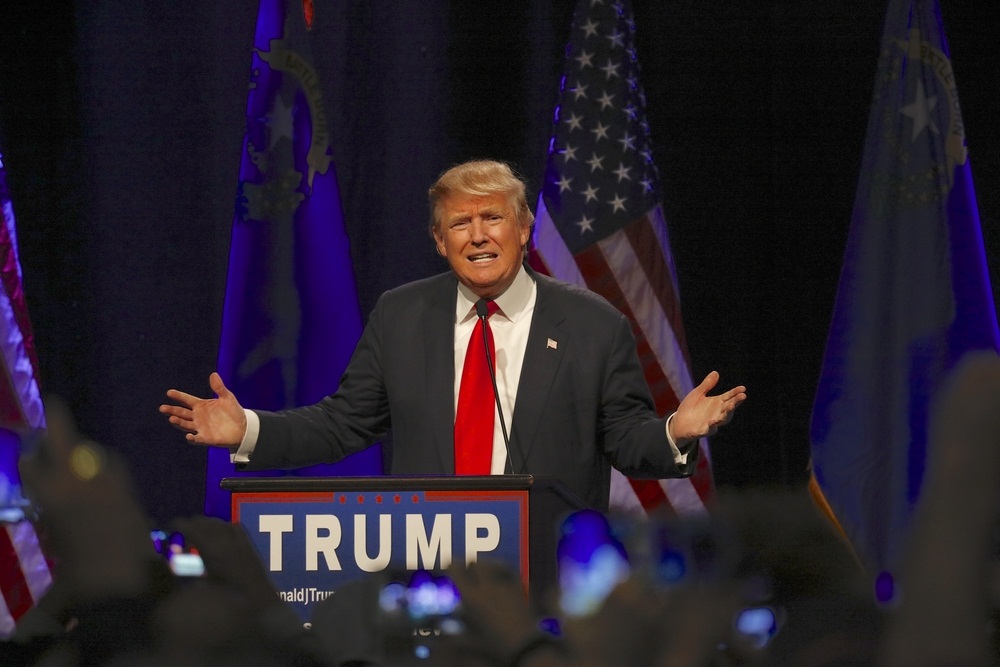Following a stunning upset in the U.S. elections, people around the world are anxiously wondering what to expect next. In the wake of an election cycle that defied all norms and tapped into the worst elements of the body politic, America now reaps the results of a fractured society… and gets its own Hunger Games.
In a contentious vote earlier this year that introduced the word “Brexit” to the world’s vocabulary, Britons narrowly – and shockingly – chose to leave the European Union. In the aftermath of that decision, a stunned world was left wringing its hands and wondering what went wrong and what would come next. That vote, however, was but a precursor of the seismic election that was to come on the other side of the Atlantic.
Tapping into a similar vein of populist resentment, frustration with the status quo, and – let’s be honest here – no small degree of white nationalism, Donald Trump was inexplicably and unexpectedly elected as the 45th president of the United States. An intemperate, narcissistic bully with no experience in or understanding of government or politics rode a wave of anger and nativism – infused liberally with doses of vile insults, racism, and sexism– into the White House. What this says about at least a segment of America is, to me, profoundly disturbing.
Adding salt to the wound, it became clear in the days following the election that Trump in fact lost the popular vote. It is projected that by the time all votes are certified, Hillary Clinton will have won the popular election by over two million votes, yet still lost the presidency. What this meant for me here in Malaysia was the need to explain about a dozen times the Electoral College and the peculiar way the U.S. elects its presidents. The founders of the country were not overly confident in the ability of everyday citizens to elect capable, qualified leaders.
Though only white male property owners were allowed to vote in early America, they still did not directly elect the President. For presidential elections, citizens actually cast their votes for a slate of electors in each state. Those electors then, in turn, voted for and elected the President. There’s more complexity behind the Electoral College than I can possibly distil into a column here, but there are three important things to know when considering its formation back in 1787.
One, it was driven by slavery, as populations in Southern states included slaves, who were not allowed to vote – consensus on a system for a direct popular vote would have been almost impossible. Two, it was designed to ensure more populous states didn’t hold all the power in presidential elections. And three, in the words of one of the concept’s chief architects, Alexander Hamilton, the system was designed to ensure that “the office of president will never fall to the lot of any man who is not in an eminent degree endowed with the requisite qualifications.” Trump fits that ignoble bill perfectly, even by the reckoning of many in his own party. To a degree never before befalling any major party presidential candidate in America, Trump was deemed to be erratic, uninformed, ill-qualified, and manifestly unfit for the office.
And yet, here we are. Now there is, in some quarters, hopeful talk of the Electoral College, which votes on December 19, denying the presidency to Trump. And it is technically possible. These electors are not constitutionally compelled to merely rubber-stamp the popular vote winner in their state. However, this isn’t to suggest Clinton could still win. If the Republican almost home candidate wins a given state – Trump in this case – the electors chosen (who actually vote for the president ) will be Republicans, too.
The chance of this slate of Republican electors defying all precedent and history and casting their votes for Clinton are virtually zero. But all they really need to do is not vote for Trump. It would take a fairly small number of Republican electors to defect and deny Trump the majority of the electoral votes he needs. If no candidate gets to the magic number of 270, the decision passes to the House of Representatives, who can choose the president from the three candidates who received the most electoral votes.
Convoluted? Perhaps. Likely to happen? Not remotely. But this election has broken every rule and rewritten the playbook already, so who’s to say what may happen?
Barring some dramatic turn of events, however, Trump will be the next American President. The misguided hope that Trump would somehow “pivot” to a more centrist, competent stance as president-elect has flamed out in only a week’s time. Early signs certainly seem to suggest that Trump could be headed for a disastrous presidency. The road ahead will be a difficult one – for America and the world.
It is my opinion that this will be the greatest test the U.S. has faced in a very long time, perhaps since the Civil War. But progressives – and even conservatives with a conscience –must be strong.We cannot choose to sit idly by, but must regroup and resist the Trumpism of America. After all, Trump lost the popular vote. So, like the unwilling participants in The Hunger Games, the choice for the United States is painfully clear: fight or die.
This article was originally published in The Expat magazine (December 2016), which is available online or in print via a free subscription.
"ExpatGo welcomes and encourages comments, input, and divergent opinions. However, we kindly request that you use suitable language in your comments, and refrain from any sort of personal attack, hate speech, or disparaging rhetoric. Comments not in line with this are subject to removal from the site. "




















